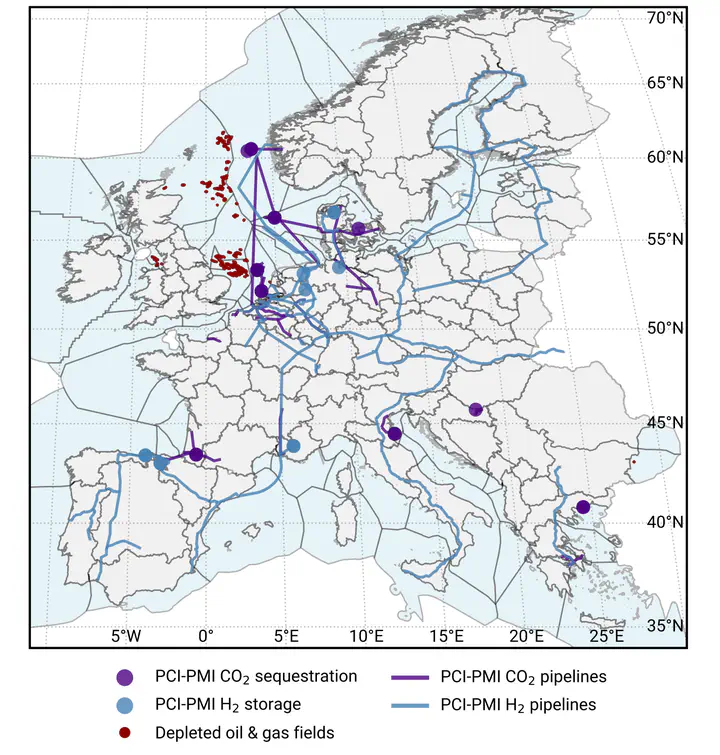The role of Projects of Common Interest in reaching Europe's energy policy targets

Abstract
The European Union aims to achieve climate-neutrality by 2050, with interim 2030 targets including 55% greenhouse gas emissions reduction compared to 1990 levels, 10 Mt of domestic green hydrogen production, and 50 Mt of domestic CO2 injection capacity annually. To support these targets, projects of common and mutual interest (PCI-PMI)—large infrastructure projects for electricity, hydrogen and CO2 transport, and storage—have been identified by the European Commission. This study focuses on PCI-PMI projects related to hydrogen and carbon value chains, assessing their long-term system value and the impact of pipeline delays and shifting policy targets using the sector-coupled energy system model PyPSA-Eur. Our study shows that PCI-PMI projects enable a more cost-effective transition to a net-zero energy system compared to scenarios without any pipeline expansion. Hydrogen pipelines help distribute affordable green hydrogen from renewable-rich regions in the north and southwest to high-demand areas in central Europe, while CO2 pipelines link major industrial emitters with offshore storage sites. Although these projects are not essential in 2030, they begin to significantly reduce annual system costs by more than €26 billion from 2040 onward. Delaying implementation beyond 2040 could increase system costs by up to €24.2 billion per year, depending on the extent of additional infrastructure development. Moreover, our results show that PCI-PMI projects reduce the need for excess wind and solar capacity and lower reliance on individual CO2 removal technologies, such as direct air capture, by 13–136 Mt annually, depending on the build-out scenario.